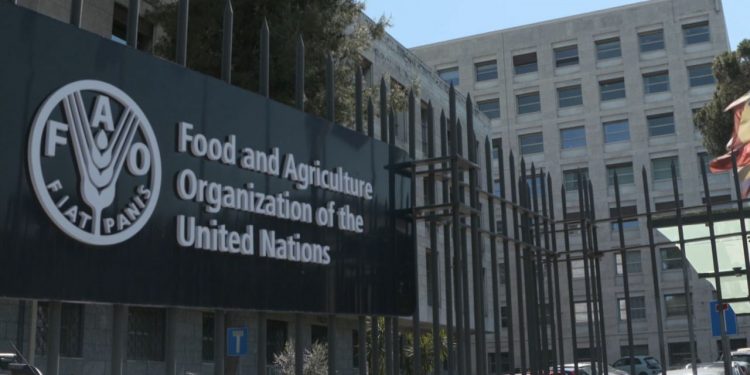A recent report by the Food and Agriculture Organization (FAO) has projected that approximately 30.6 million Nigerians will experience acute food and nutrition insecurity between June and August 2025. The report, which analyzed data from 26 states and the Federal Capital Territory, highlights the worsening hunger crisis, particularly in conflict-affected regions.
The FAO’s assessment indicates that 1.2 million people in Adamawa, 1.7 million in Borno, and 1.4 million in Yobe will be among the worst affected during the lean season. The primary factors driving this crisis include persistent insecurity, insurgency, kidnapping, and banditry, which have severely disrupted farming activities and other livelihoods. The FAO report also points to soaring food prices, declining availability, and limited access to clean water as major contributors to the crisis.
FAO Country Representative Kouacou Dominique Koffy described the situation as dire, emphasizing that “we have faced unprecedented times in the country and region, with multiple shocks affecting livelihoods and food security.” He called for immediate and sustained intervention from the government, humanitarian organizations, and the private sector to prevent the crisis from escalating further.
The report comes at a time when Nigeria’s inflation rate has reached record highs, with food inflation significantly impacting household purchasing power. The rising cost of staple foods such as rice, maize, and beans has made basic nutrition increasingly unaffordable for millions of Nigerians. In many rural communities, farmers are unable to cultivate crops due to ongoing violence, forcing families to rely on expensive imports or humanitarian aid.
Furthermore, Nigeria’s agricultural sector continues to face structural challenges, including poor storage facilities, inadequate transportation networks, and inefficient supply chains. The combination of these factors has made food distribution uneven, with shortages becoming more pronounced in vulnerable regions.
The FAO’s food security analysis is conducted twice a year, in March and October, to assess the severity of hunger across the country and recommend appropriate interventions. Koffy revealed that in early 2024, the FAO supported the expansion of the Cadre Harmonisé (CH) food security assessment to 10 additional states through state-level sensitization and training programs for analysts. However, due to funding constraints, the latest report does not include these states.
“We appeal to stakeholders, including state governments, to join hands and support data collection efforts, so that by October this year, the entire country can be analyzed,” Koffy said. He stressed that a comprehensive nationwide assessment would help policymakers make informed decisions and develop targeted strategies to combat food insecurity.
The FAO’s warning underscores the need for an urgent, multi-faceted approach to addressing food insecurity in Nigeria. Beyond emergency food aid, experts argue that long-term solutions must include improving agricultural productivity, strengthening rural economies, and investing in food storage and distribution infrastructure.
Insecurity remains one of the biggest threats to food production, particularly in northern Nigeria, where armed groups frequently attack farmers and destroy farmlands. Analysts have urged the government to intensify security measures in rural areas to allow farmers to return to their fields without fear of violence.
As Nigeria grapples with economic instability, the FAO’s report serves as a stark reminder that without immediate intervention, millions of Nigerians could face severe hunger in the coming year. The situation calls for coordinated action among government agencies, international organizations, and local communities to mitigate the impending food crisis and protect the most vulnerable populations.










